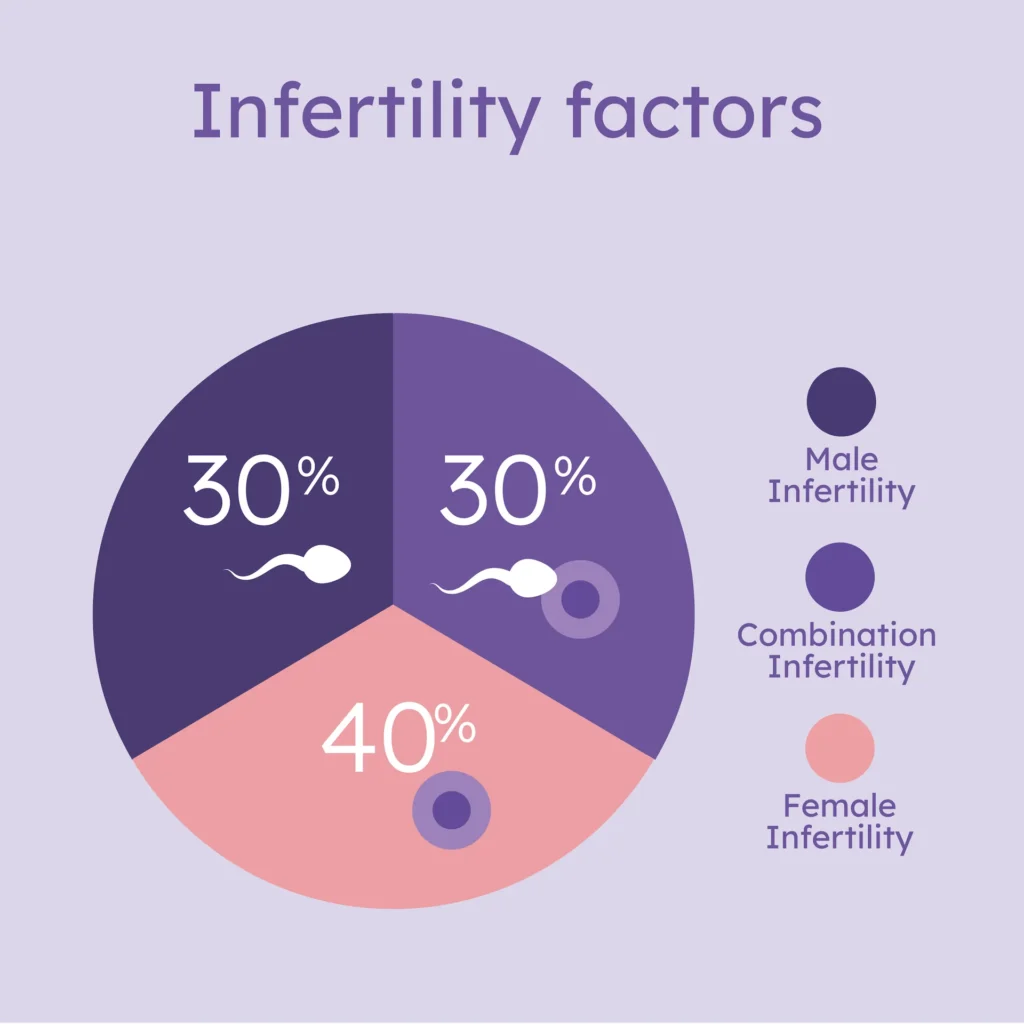As fertility awareness grows and medical tourism becomes more mainstream, a rising number of men are seeking male fertility testing abroad. International fertility clinics now offer a wide range of cutting-edge diagnostic tests tailored to the unique needs of travelers. Whether you’re evaluating your ability to conceive or planning fertility preservation, here’s a detailed look at the most common types of male fertility tests available to international patients.
1. Semen Analysis (Basic & Advanced)
What it is:
The cornerstone of male fertility evaluation, semen analysis assesses the quality and quantity of sperm in a sample.
Measures:
- Sperm count (concentration and total count)
- Motility (how well sperm move)
- Morphology (shape and structure)
- Volume and viscosity of ejaculate
- pH levels and white blood cell count
Technology used:
Most modern clinics use Computer-Assisted Semen Analysis (CASA) for improved accuracy and repeatability.
Why it matters:
Abnormal results in any of these categories can indicate fertility issues or underlying health conditions.
2. Sperm DNA Fragmentation Test (DFI)
What it is:
This test evaluates the integrity of the sperm’s genetic material, which isn’t always visible in a standard semen analysis.
Common methods:
- SCSA (Sperm Chromatin Structure Assay)
- TUNEL assay
- Comet assay
Why it matters:
Even if sperm count and motility are normal, high DNA fragmentation can reduce the chances of natural conception or IVF success, and increase miscarriage risk.
Ideal for:
Men with unexplained infertility, past IVF failures, recurrent miscarriages, or lifestyle risk factors (e.g. smoking, pollution exposure, high stress).
3. Hormonal Profile Testing
What it is:
This blood test measures hormone levels that play key roles in sperm production and male reproductive health.
Typical hormones tested:
- FSH (Follicle-Stimulating Hormone) – regulates sperm production
- LH (Luteinizing Hormone) – stimulates testosterone production
- Testosterone – essential for libido, sperm production, and overall fertility
- Prolactin – high levels can impair fertility
- Estradiol (E2) – excess can indicate hormonal imbalance
- SHBG (Sex Hormone-Binding Globulin) – affects testosterone bioavailability
Why it matters:
Hormonal imbalances are common and can be treated with lifestyle changes, supplements, or medical therapy to restore fertility.
4. Genetic Testing
What it is:
These tests look for inherited conditions that might cause infertility or affect your future child’s health.
Common genetic tests include:
- Karyotyping – examines chromosome structure for abnormalities
- Y chromosome microdeletion testing – detects missing gene segments crucial for sperm production
- Cystic fibrosis gene screening – relevant if you have congenital absence of the vas deferens (CBAVD)
Why it matters:
Genetic issues may impact treatment options, including IVF with ICSI or donor sperm decisions.
5. Scrotal and Transrectal Ultrasound
What it is:
A non-invasive imaging test used to detect physical abnormalities in the testicles, epididymis, or vas deferens.
Conditions it may reveal:
- Varicocele (enlarged veins around the testicle)
- Blockages in the sperm transport pathway
- Testicular masses or cysts
Why it matters:
Many treatable structural problems can significantly affect sperm production and delivery.
6. Oxidative Stress Testing
What it is:
This test checks for excessive reactive oxygen species (ROS) in semen, which can damage sperm DNA and membranes.
Why it matters:
Oxidative stress is a major cause of unexplained male infertility. Results can guide antioxidant-based treatments.
Ideal for:
Men exposed to environmental toxins, smokers, or those with high-stress lifestyles.
7. Anti-Sperm Antibody Test
What it is:
Detects antibodies that may mistakenly target your own sperm, impairing their movement and fertilization ability.
Why it matters:
Common after vasectomy, testicular trauma, or infections. If positive, it may alter your treatment plan (e.g. IVF with ICSI).
8. Semen Culture and Infection Screening
What it is:
Lab analysis of semen to detect bacterial, viral, or fungal infections that may impair fertility or pose risks during conception.
Why it matters:
Untreated infections can reduce sperm quality and increase DNA damage. Many are treatable with antibiotics or antiviral therapy.
9. Erectile and Ejaculatory Function Evaluation
What it is:
Questionnaires and sometimes blood tests used to assess performance-related factors that can impact natural conception.
Why it matters:
Conditions like retrograde ejaculation or erectile dysfunction may require medical or procedural intervention to retrieve sperm.
10. Sperm Banking and Cryopreservation (Optional Add-On)
What it is:
Storage of sperm samples for future use, particularly helpful for men who:
- Are undergoing medical treatment (e.g., chemotherapy)
- Want to preserve fertility due to age or lifestyle
- Plan to delay fatherhood
Why it matters:
Sperm freezing is a safe, reliable way to preserve reproductive potential.
Final Thoughts
International fertility clinics today offer a comprehensive suite of male fertility tests that go far beyond basic semen analysis. These tests are accurate, confidential, and often more affordable than in many Western countries—without compromising on quality. Whether you’re planning a family, evaluating treatment options, or simply seeking peace of mind, understanding these tests can empower you to make informed decisions while abroad.




